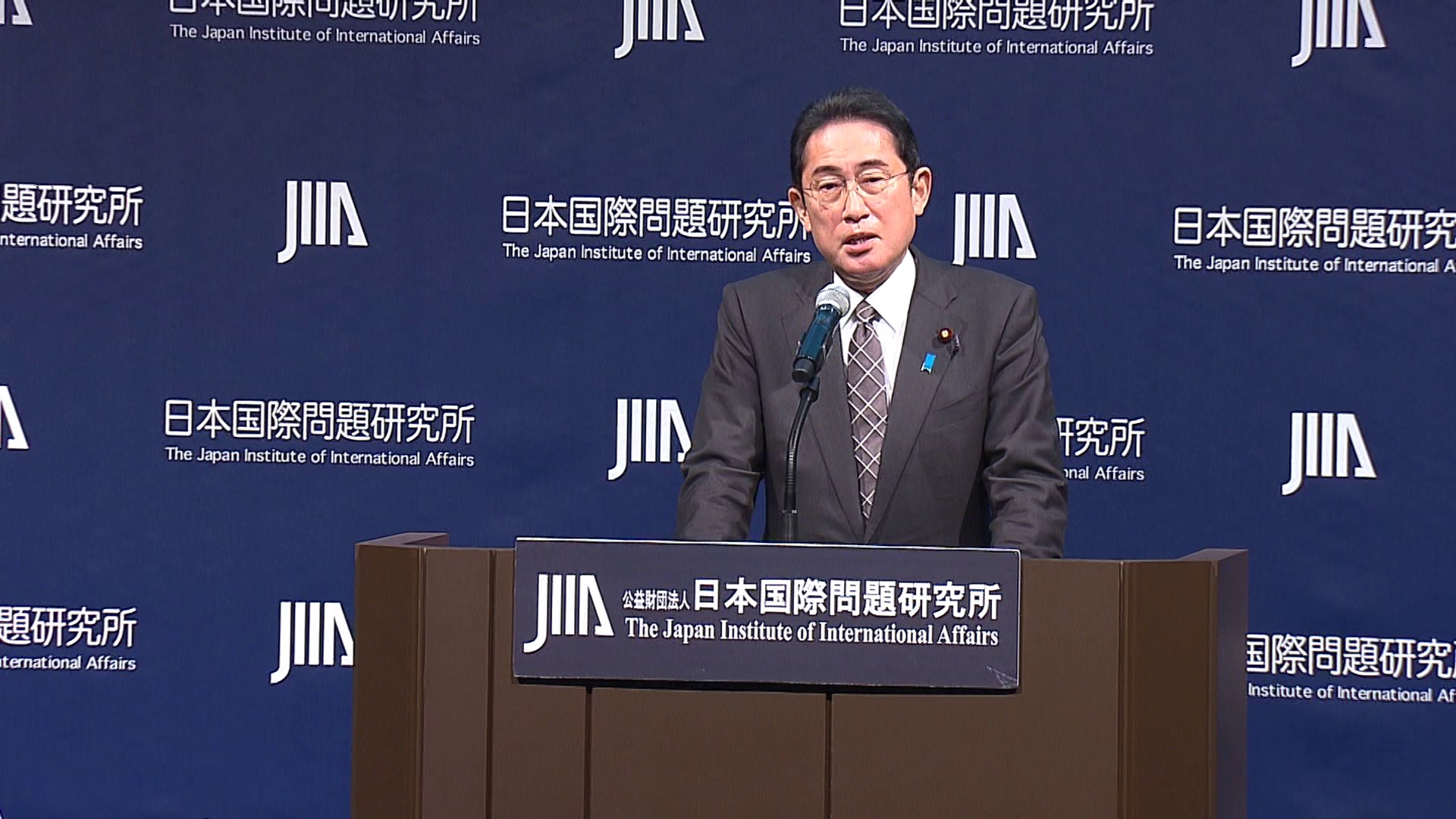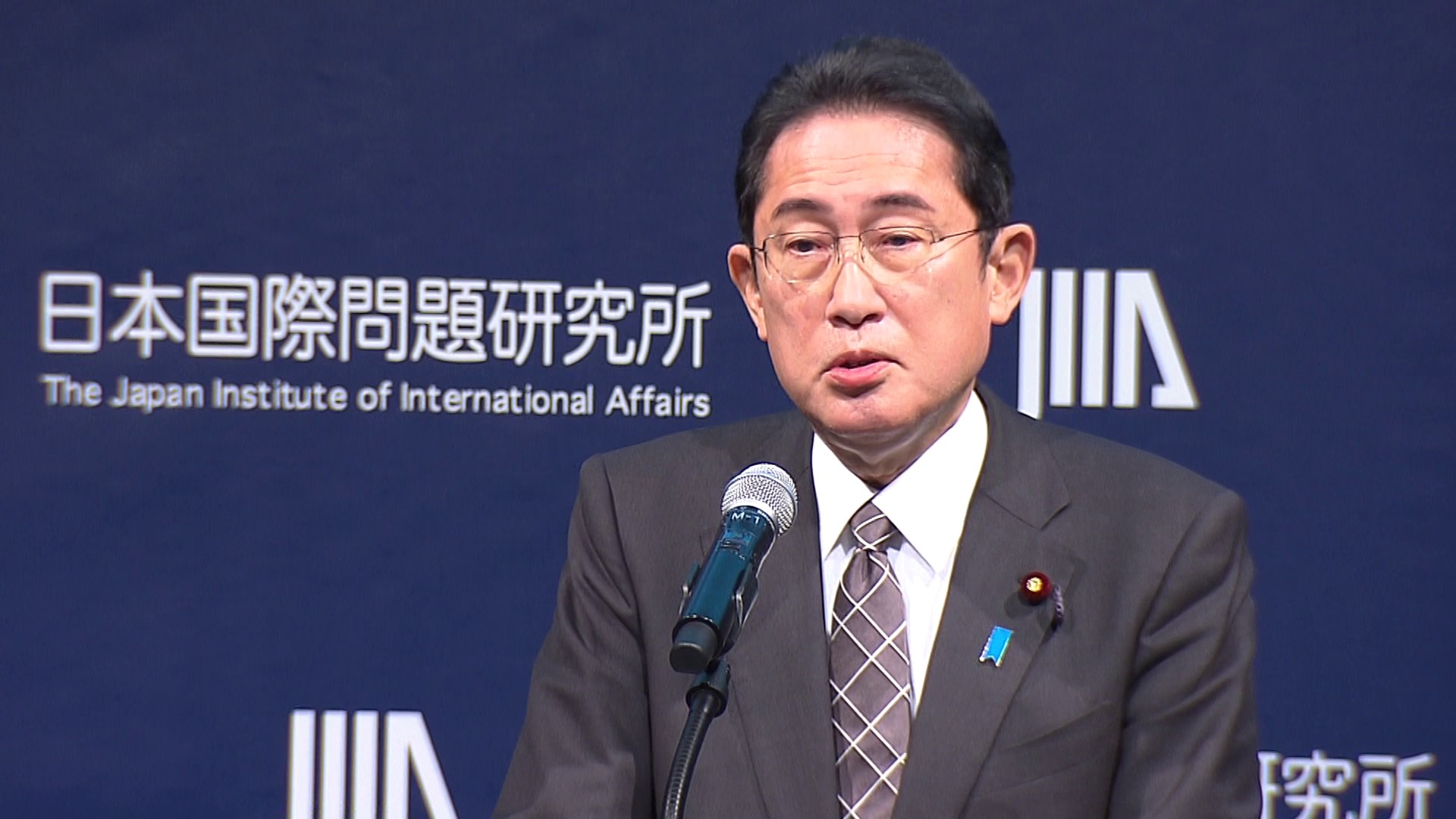Tokyo Global Dialogue
February 20, 2023
[Provisional translation]
On February 20, 2023, Prime Minister Kishida attended the fourth Tokyo Global Dialogue held in Tokyo.
Prime Minister Kishida said in his address,
“I am KISHIDA Fumio, Prime Minister of Japan. Today I would like to offer my heartfelt congratulations to Chairman Oka, President Sasae, and all those present here on the fourth Tokyo Global Dialogue for four consecutive years.
I heard the “End of the ‘post-Cold War’ Era” is the theme for this dialogue. Russia’s aggression against Ukraine is not only a European matter, but also a challenge to the rules and principles of the international community as a whole. This was exactly a harbinger of the end of the post-Cold War world. As Japan is facing a harsh security environment, I saw with my own eyes the reality of attempts to change the status quo by force being made and felt a strong sense of crisis that “Ukraine today might be East Asia tomorrow.” This is the very reason why I decided as Prime Minister of Japan to resolutely respond to the act of aggression by imposing strict sanctions on Russia and providing robust support for Ukraine. At the same time, Japan has made active diplomatic efforts with the G7 and other like-minded countries.
As this year’s G7 Presidency holder and a non-permanent member of the United Nations Security Council, Japan is positioned to lead global efforts to support Ukraine in its fight against Russia’s invasion and to uphold the free and open international order based on the rule of law. With this mindset, Japan has offered assistance to Ukraine thus far. This time, we have decided to provide additional financial support worth 5.5 billion dollars for the country, which remains in need of support for people deprived of the foundations of their livelihoods in the war and the reconstruction of destroyed infrastructure, and to seek a Diet approval for relevant legislative revisions and other matters going forward. In addition, Japan will host a G7 video conference summit and invite President Zelenskyy to it on the first anniversary of the beginning of the invasion on the 24th this week, so that the G7 leaders will remain united against the aggression on Ukraine. Through this summit, we will pave the way for discussions in the G7 Hiroshima Summit in May.
Due to Moscow’s words and deeds, the world is now facing a real threat of nuclear weapons once again. Under these circumstances, it is of great significance for the G7 leaders to gather in Hiroshima, which suffered atomic bombing, and to hold discussions on nuclear disarmament. Furthermore, it is important to thoroughly convey the reality of atomic bombings to the G7 leaders and the wider world as the starting point for all initiatives toward nuclear disarmament. From this perspective, we are giving careful consideration to the schedule of the Hiroshima Summit, including a visit to the Peace Memorial Museum. Disregarding the history is absolutely unacceptable that no nuclear weapon has been used since the dropping of atomic bombs on Hiroshima and Nagasaki. We intend to send this strong message to the world from the A-bombed site of Hiroshima.
The security environment surrounding Japan is the most severe and complex since the end of the Second World War, as shown by unilateral attempts to change the status quo by force in the East and South China Seas as well as North Korea’s intensifying nuclear and missile activities. To squarely face this reality, we formulated a new National Security Strategy and other documents at the end of last year and decided to make a major shift in our national security policy. Nevertheless, needless to say, diplomatic efforts must come first. We will make proactive and robust efforts of realistic diplomacy, including at the summit level. After holding a number of exchanges of views with foreign leaders, I feel again high expectations from the international community toward Japan and the weight of responsibility on the flip side of the coin.
In the Hiroshima Summit to be held against this background, we intend to show the world the G7’s strong determination to resolutely refuse unilateral attempts to change the status quo by force and defend the international order based on the rule of law. At the same time, we will hold candid discussions among the G7 leaders regarding the world economy including energy and food security, the regional situation such as the Indo-Pacific, economic security, as well as climate change, health, development, and other global issues. I believe that, at this historic juncture, we can resolve various challenges facing the international community and carve out the next era only through concerted efforts of all the countries and peoples, regardless of economic size or development stage, or different values or interests. From this point of view, Japan will carry over achievements as the G7 Presidency holder to the G20 (Summit on Financial Markets and the World Economy) as well as create a new era together with every country through dialogue and cooperation.
Let me conclude my remarks by wishing that as Japan and the international community is tackling new, unprecedented challenges, the Tokyo Global Dialogue will contribute to showing a path toward an era next to the post-Cold War one.
Thank you very much for your kind attention.”

